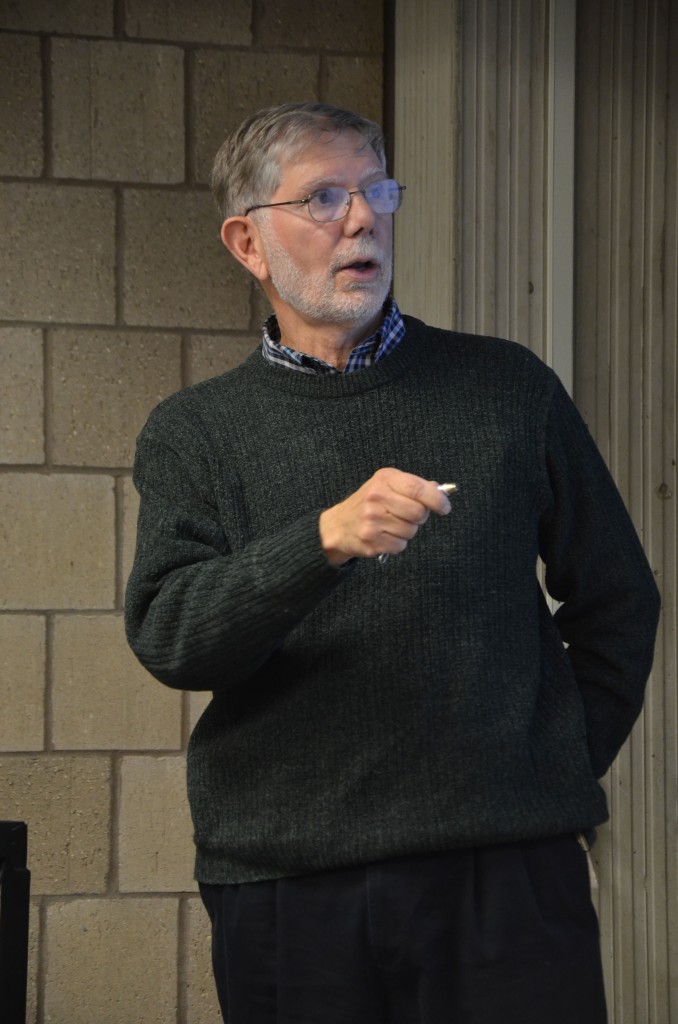
According to new research, the ability to taste food may extend far beyond the mouth.
As a part of the Harpur College Dean’s Speaker Series in Psychological Sciences, students and faculty gathered in Science IV on Friday afternoon to learn about gut tasting.
This lecture featured guest speaker Anthony Sclafani, a professor of psychology at Brooklyn College, who presented an overview of his studies and findings regarding the role of taste receptors in the intestines, otherwise known as “gut taste.” Although his lecture was advertised as “Gut Taste,” Sclafani referred to the formal title of his lecture, “How Gut Nutrient Sensing Modulates Food Preferences.”
Sclafani said that he has been interested in ingestive behavior since graduate school and has been experimenting with its relationship to the brain and food preferences since the 1970s.
From his studies, Sclafani has found that food is tasted many times throughout the digestive process and the same taste receptors found on the tongue are also in the gut. The term “gut taste” describes the study of taste receptors in the intestines.
“The tongue is the beginning of your gut,” Sclafani said. “Your gut has a brain, and it also has tasters.”
His studies have shown that the reactions to taste by receptors in the gut and other parts of the body respond independently from each other.
Most of Sclafani’s research focuses on the role of sweet taste receptors in the body, as opposed to bitter or other taste receptors. Sclafani found that sweet taste receptors are found all over the body in places such as the brain, urinary bladder and even sperm cells. This research has lead Sclafani to investigate the relationship between sweet taste receptors and appetite.
According to Sclafani, the taste receptors in tongues are also found in other parts of the body. These findings led to the conclusion that humans don’t only taste in their mouths, but also in other parts of their body, specifically the gut.
Sclafani has coined the term “appetition,” which refers to the stimulation of appetite produced by the nutrients in the gut. In the process of exploring this effect, Sclafani said that he and his research team are on the brink of a new discovery.
“We believe that a whole new hormone is yet to be discovered,” Sclafani said. “We believe that it might be something significant to stimulate appetite.”
Sclafani hopes that his research may influence the cure for diabetes and help scientists better understand the obesity epidemic.
“Scientists think that if we could control how these sweet taste receptors in the gut work, then we can have benefits for controlling diabetes,” he said. “If we came up with some kind of inhibitor that can block some of this ‘appetition’ effect, then maybe it can prevent us from eating so much sugar.”
Ralph Miller, a distinguished professor of psychology at Binghamton University, was the main organizer of the lecture and has known Sclafani since the beginnings of Sclafani’s research in the 1970s.
“What I have really enjoyed about Tony’s work over the years is that he works on different levels of analysis,” Miller said. “Tony stands out because he knows something about behavior, and he knows something about neuroscience.”


